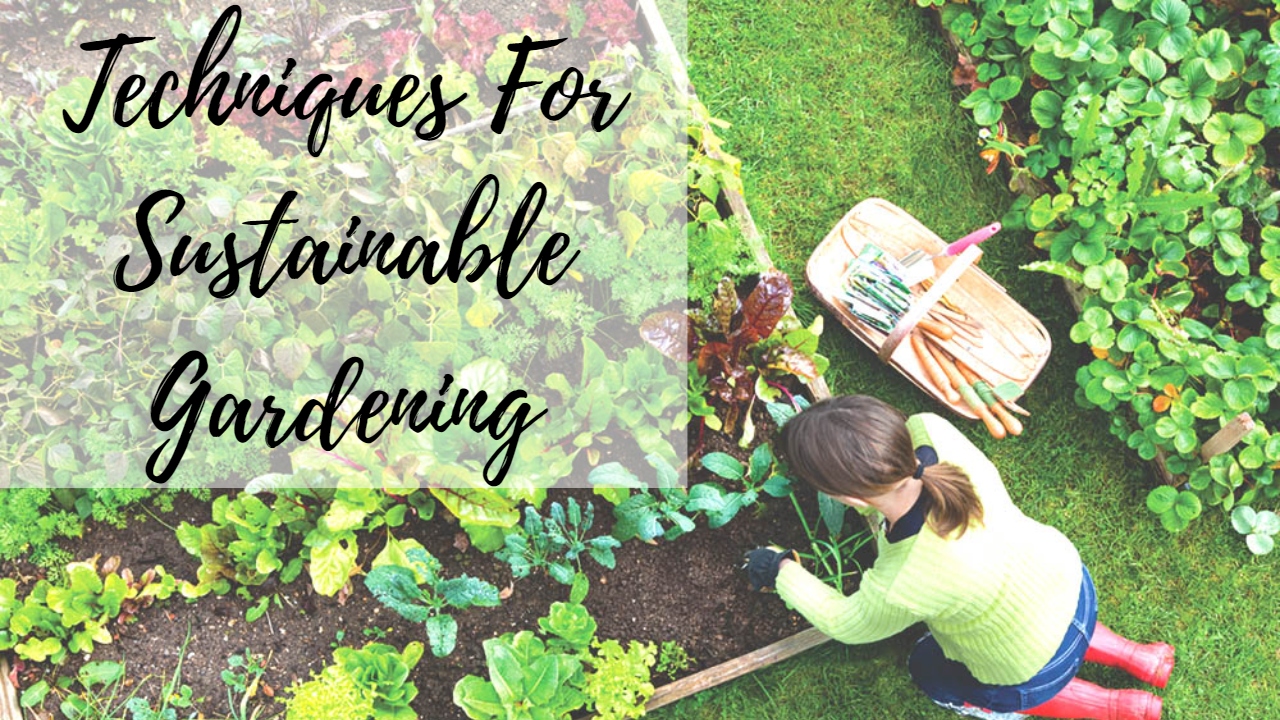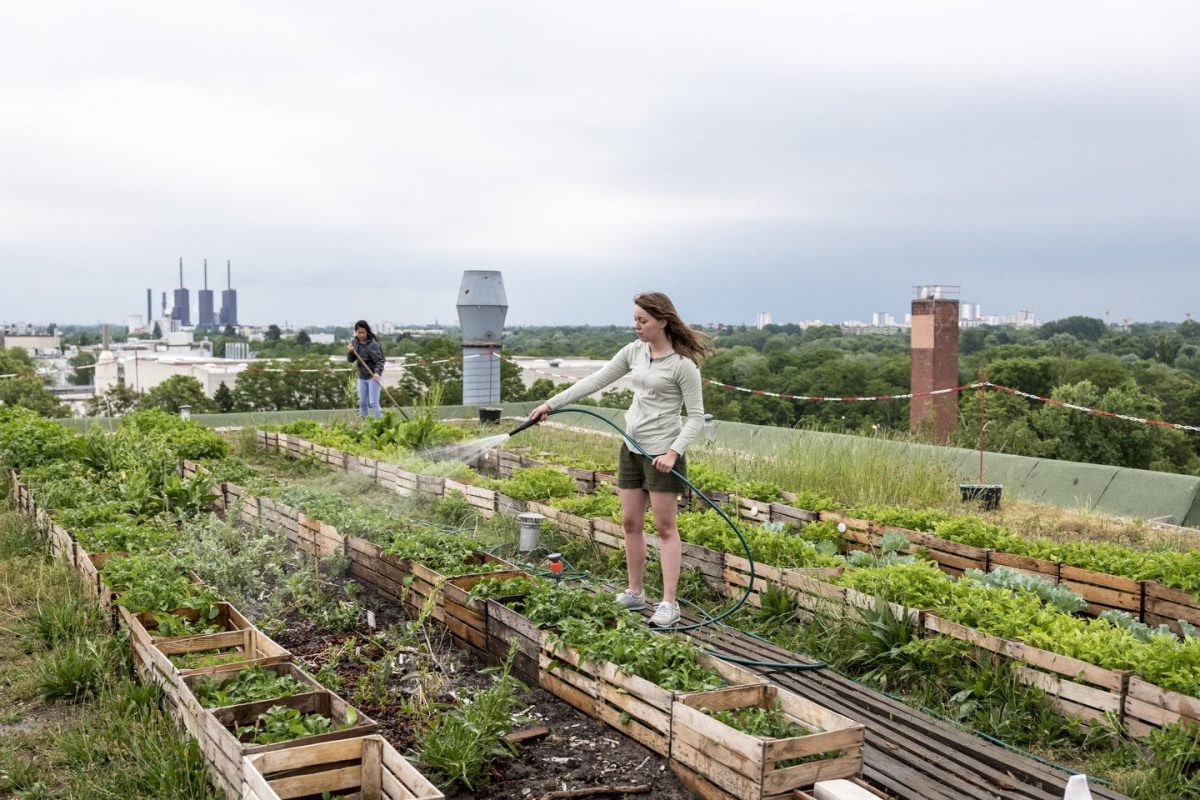Revolutionize Your Garden: Sustainable Modern Methods

Imagine transforming your garden into a lush, eco-friendly oasis that not only beautifies your space but also contributes to a healthier planet. With sustainable modern gardening methods, you can achieve just that. Whether you're a seasoned green thumb or a novice just starting out, embracing these techniques can revolutionize your gardening experience. Let's dive into the world of organic gardening, urban gardening, permaculture, water conservation, and composting to create a garden that's as sustainable as it is stunning.
The Essence of Sustainable Modern Gardening Methods
Sustainable modern gardening methods are all about creating a harmonious balance between nature and human intervention. By adopting these practices, you can reduce your environmental footprint, conserve resources, and foster a thriving ecosystem right in your backyard.
Organic Gardening: The Foundation of Sustainability
Organic gardening is the cornerstone of sustainable modern gardening methods. It involves using natural, non-toxic materials and techniques to grow plants. By avoiding synthetic pesticides and fertilizers, you can create a healthier environment for both your plants and the local wildlife.
One of the key principles of organic gardening is soil health. Healthy soil is teeming with beneficial microorganisms that break down organic matter and provide essential nutrients to plants. Composting is a fantastic way to enrich your soil naturally. By recycling kitchen scraps and yard waste, you can create a nutrient-rich compost that improves soil structure and fertility.
Urban Gardening: Green Spaces in the City
Urban gardening is gaining popularity as more people recognize the benefits of growing their own food and creating green spaces in urban environments. Whether you have a small balcony or a rooftop garden, there are plenty of ways to incorporate sustainable modern gardening methods into your urban oasis.
Vertical gardening is an excellent solution for limited space. By growing plants upwards on trellises, walls, or even hanging baskets, you can maximize your gardening area and create a lush, green sanctuary. Container gardening is another versatile option, allowing you to grow a variety of plants in pots, which can be moved around as needed.
Permaculture: Designing with Nature
Permaculture is a holistic approach to sustainable modern gardening methods that focuses on designing landscapes that mimic natural ecosystems. By observing and working with nature, you can create a self-sustaining garden that requires minimal intervention.
One of the core principles of permaculture is the use of perennial plants, which return year after year and require less maintenance than annuals. These plants not only provide food and habitat for wildlife but also help to stabilize the soil and prevent erosion.
Another key aspect of permaculture is the integration of different elements within the garden. For example, planting fruit trees alongside vegetables can provide shade and nutrients, while also attracting beneficial insects. This interconnected approach creates a resilient and diverse ecosystem that thrives with minimal effort.
Water Conservation: Every Drop Counts
Water is a precious resource, and conserving it is essential for sustainable modern gardening methods. By implementing water-saving techniques, you can ensure that your garden thrives without wasting this valuable resource.
Rainwater harvesting is an effective way to collect and store rainwater for later use. By installing rain barrels or cisterns, you can capture water from your roof and use it to irrigate your garden. This not only reduces your reliance on municipal water supplies but also helps to conserve water during dry periods.
Drip irrigation is another efficient watering method that delivers water directly to the roots of plants, minimizing evaporation and runoff. This targeted approach ensures that your plants receive the water they need without wasting a drop.
Composting: Turning Waste into Wealth
Composting is a fundamental practice in sustainable modern gardening methods. It involves recycling organic materials, such as food scraps and yard waste, into a nutrient-rich soil amendment. By composting, you can reduce waste, improve soil health, and support plant growth.
There are several methods of composting, including traditional bin composting, vermicomposting (using worms), and bokashi composting (fermenting organic waste). Each method has its own advantages and can be tailored to suit your specific needs and space constraints.

Putting It All Together: Creating Your Sustainable Garden
Now that you have a solid understanding of sustainable modern gardening methods, it's time to put these principles into practice. Here are some steps to help you create a thriving, eco-friendly garden:
Assess Your Space: Take a close look at your garden and identify areas where you can implement sustainable practices. Consider factors like sunlight, soil type, and available space.
Plan Your Design: Sketch out a rough plan of your garden, incorporating elements of permaculture, such as perennial plants and integrated design. Think about how different plants can support each other and create a balanced ecosystem.
Prepare Your Soil: Enrich your soil with organic matter, such as compost or well-rotted manure. This will improve soil structure and fertility, providing a healthy foundation for your plants.
Choose the Right Plants: Select plants that are well-suited to your climate and soil conditions. Opt for native species and drought-tolerant varieties to conserve water and support local wildlife.
Implement Water-Saving Techniques: Install rain barrels or cisterns for rainwater harvesting, and set up a drip irrigation system to ensure efficient watering.
Compost Regularly: Set up a composting system that works for you, whether it's a traditional bin, vermicomposting, or bokashi. Regularly add organic materials to keep your compost pile active and productive.
Monitor and Adjust: Keep a close eye on your garden and make adjustments as needed. Observe how different plants interact and adapt your practices to support their growth.
Conclusion: Embrace the Green Revolution
Revolutionizing your garden with sustainable modern gardening methods is not just about creating a beautiful space; it's about contributing to a healthier planet. By embracing organic gardening, urban gardening, permaculture, water conservation, and composting, you can create a thriving ecosystem that benefits both you and the environment.
So, are you ready to take the first step towards a greener future? Start by assessing your garden and implementing these sustainable practices. Remember, every small change makes a difference. Let's make our gardens a testament to the power of nature and the beauty of sustainability.

FAQs
What are the benefits of organic gardening? Organic gardening promotes soil health, reduces environmental pollution, and supports biodiversity. It also ensures that the food you grow is free from synthetic chemicals, making it healthier for consumption.
How can I start urban gardening with limited space? Urban gardening can be done in small spaces using vertical gardening techniques, container gardening, or even hydroponic systems. Choose compact plants and make use of walls, balconies, and rooftops.
What is permaculture, and how does it differ from traditional gardening? Permaculture is a design approach that mimics natural ecosystems, focusing on sustainability and self-sufficiency. Unlike traditional gardening, which often relies on annual plants and external inputs, permaculture emphasizes perennial plants and integrated design.
What are some effective water conservation techniques for gardening? Effective water conservation techniques include rainwater harvesting, drip irrigation, mulching to retain soil moisture, and choosing drought-tolerant plants.
How can I get started with composting at home? To start composting, set up a compost bin or pile in a shady spot. Add a mix of green materials (like food scraps) and brown materials (like leaves) to create a balanced compost. Turn the pile regularly to aerate it and speed up the decomposition process.
0 Response to "Revolutionize Your Garden: Sustainable Modern Methods"
Post a Comment